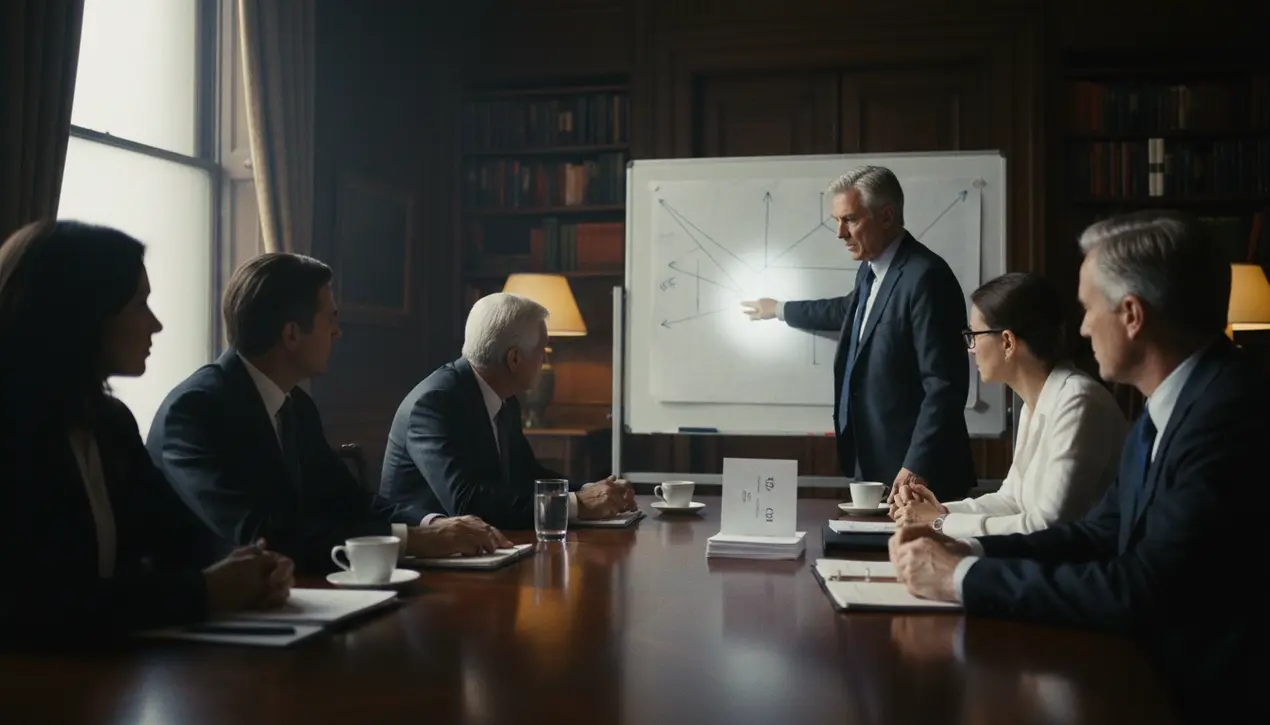
PoliticselectionsElectoral Reforms
Democrats consider ranked-choice voting for 2028 presidential primaries.
MA
Mark Johnson
50 minutes ago7 min read
Behind the closed doors of Democratic power brokers, a quiet revolution is brewing that could fundamentally reshape how America's dominant left-leaning party selects its standard-bearer. Democratic National Committee chair Ken Martin has been holding discreet meetings with advocates pushing for ranked-choice voting in the 2028 presidential primaries, a move that would represent the most significant overhaul of the party's nomination process in decades.This isn't just some abstract policy debate—it's political trench warfare, with Rep. Jamie Raskin (D-Md.), Biden pollster Celinda Lake, and the nonprofit FairVote Action making their case directly to party leadership during a late October gathering that could determine the future of Democratic politics. The strategic calculus is clear: ranked-choice voting, which allows voters to rank candidates by preference rather than choosing just one, would fundamentally alter campaign dynamics by encouraging coalition-building and reducing the bitter acrimony that has plagued recent primaries.Remember the brutal Hillary Clinton-Bernie Sanders showdowns of 2016 that left lasting scars? Or the crowded 2020 field where candidates tore each other apart before ultimately unifying against Trump? Raskin argues this system favors 'positive politics rather than negative politics,' potentially preventing the decades-long bitterness that sometimes follows divisive primaries. The tactical advantages are numerous—votes wouldn't be 'wasted' on candidates who drop out early, new faces and grassroots movements would get a better shot, and the process would inherently encourage candidates to seek second-choice support from rivals' supporters rather than attacking them.But the DNC response reveals deep strategic divisions within the party apparatus. While one committee member declared they're 'totally open' to the change, another voiced skepticism about federalizing what has traditionally been state-driven election processes.Critics warn of logistical nightmares—longer wait times at polls, potential voter confusion, and a primary calendar that could stretch interminably. The implementation hurdles are substantial: this would require approval from the powerful rules and bylaws committee, a majority of the 450-member DNC, state party buy-in, and changes to election laws in numerous states.Meanwhile, the ranked-choice voting push represents just one front in the broader early maneuvering over the 2028 primary rules, with internal debates over which states vote first and how delegates are allocated running parallel to this voting method discussion. The precedent exists—Alaska and Maine have adopted ranked-choice voting for certain elections, while New York City's recent implementation propelled Mayor-elect Zohran Mamdani to a decisive primary win, giving advocates concrete evidence to point toward.As Lake told Axios, this system 'gives a better chance to new faces, outsider candidates, people with grassroots movements' and 'really meets the moment' for a party constantly balancing establishment preferences with insurgent energy. The DNC's official silence—a spokesperson declined to comment—speaks volumes about how sensitive this internal debate remains. What's unfolding is essentially a proxy war over the soul of the Democratic Party: should it prioritize unity and consensus-building through mechanisms like ranked-choice voting, or maintain traditional winner-take-all approaches that sometimes produce clear mandates but often leave factions deeply divided? The outcome of this behind-the-scenes battle could determine not just how Democrats pick their 2028 nominee, but whether the party emerges from that process strengthened or fractured heading into what will likely be another high-stakes general election.
#featured
#Democratic Party
#ranked-choice voting
#2028 primaries
#electoral reform
#coalition-building
Stay Informed. Act Smarter.
Get weekly highlights, major headlines, and expert insights — then put your knowledge to work in our live prediction markets.
Related News
Comments
Loading comments...
© 2025 Outpoll Service LTD. All rights reserved.